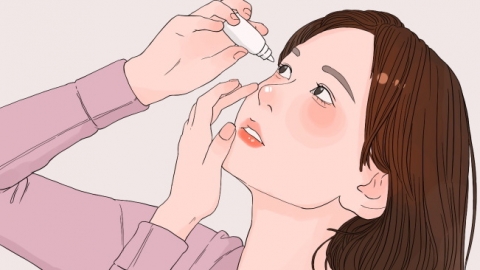How to treat floaters to achieve recovery
Floaters are usually associated with aging, eye strain, myopia, trauma, uveitis, and other factors. Patients can treat the condition by ensuring adequate rest, avoiding excessive eye use, and following medical advice regarding medication. It is recommended that patients seek timely medical treatment at a hospital and follow the guidance of healthcare professionals. Detailed analysis is as follows:

1. Aging: With age, the vitreous humor inside the eye gradually liquefies and forms cloudy substances, leading to floaters. No specific treatment is required; symptoms can be alleviated by resting the eyes, avoiding excessive eye strain, and consuming more foods rich in vitamins.
2. Eye strain: Prolonged staring at electronic screens, such as computers and mobile phones, along with poor eye habits, may lead to eye fatigue and subsequently cause floaters. Improving eye habits, taking regular breaks, and avoiding prolonged continuous eye use are recommended. Eye fatigue can also be relieved through warm compresses and eye exercises.
3. Myopia: Individuals with high myopia are more prone to developing floaters because myopia may cause premature liquefaction of the vitreous and thinning of the retina. If symptoms are severe, wearing appropriate glasses or contact lenses may be considered. Additionally, attention should be given to eye rest and avoiding excessive eye use.
4. Trauma: Injury or impact to the eye may cause vitreous hemorrhage or cloudiness, resulting in floaters, which may be accompanied by symptoms such as eye pain, redness, swelling, and vision loss. If symptoms are mild, they can be relieved through rest, cold compresses, and similar measures.
5. Uveitis: Uveitis may be caused by bacterial or viral infections or autoimmune reactions, leading to inflammation and edema of intraocular tissues. During the inflammatory process, cellular debris and protein deposits in the vitreous can produce floaters. Symptoms may also include eye pain, photophobia, tearing, and vision loss. Patients are advised to take medications such as diclofenac sodium sustained-release tablets, dexamethasone acetate tablets, and indomethacin sustained-release capsules under the guidance of a doctor to alleviate the condition.
In daily life, maintaining good lifestyle habits and ocular hygiene can also help prevent and alleviate floaters. These measures may include avoiding prolonged eye use, taking appropriate breaks to reduce eye fatigue, and maintaining a balanced diet.




